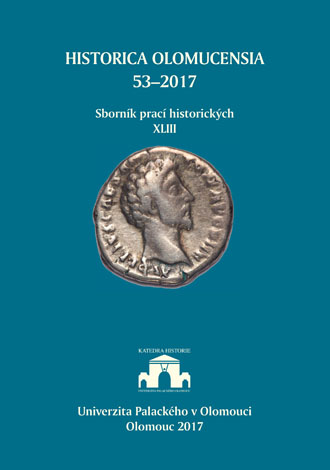Smlouva o vydávání chetitských textů a rozluštění chetitského jazyka
The Agreement on the Publication of the Hittite Texts and the Decipherment of the Hittite Language
Author(s): Šárka VelhartickáSubject(s): History
Published by: Univerzita Palackého v Olomouci
Keywords: Bedřich Hrozný; German Oriental Society; Hittite language; decipherment of the Hittite language; cuneiform tablets; Boğazköy; Istanbul; Hugo Heinrich Figulla; Otto Weber; Bruno Güterbock; Eckhard Unge
Summary/Abstract: The cultures of the ancient Near East, which after their decline had disappeared from the map of the world and had faded into obscurity, were rediscovered in Modern period, albeit slowly and with great difficulty. Expeditions and archaeological excavations in the Near East, especially since the 19th century, have led to discoveries of vanished cities and their cultures and with them also clay tablets covered with cuneiform script. At first, the languages of Mesopotamia – Akkadian and Sumerian – were deciphered, which made it possible to understand a great number of written sources and ancient oriental literature. At the beginning of the 20th century, when the forgotten capital of the former Hittite Empire was discovered in the middle of Anatolia, tablets covered with cuneiform script were found as well, although in what at the time was an unknown and incomprehensible language, Hittite. The Archive of the German Oriental Society holds documents from the period when this society began to publish these texts and sought after researchers who could accomplish such a difficult task. Apart from German orientalist Hugo H. Figulla, the society sent one more scholar to Istanbul, Czech philologist Bedřich Hrozný, who had been working in Vienna, and who managed to decipher the unknown language thanks to his extraordinary diligence, enthusiasm and broad linguistic skills. He presented his discovery in a lecture in Berlin on 24 November 1915, which marked a turning point not only in ancient oriental research but also in comparative linguistics and other related disciplines. The presented documents from the Archive of the German Oriental Society (here in Czech translation) constitute primary documentation not only of the negotiations around Bedřich Hrozný’s participation in this project but also of Hrozný’s stay in Istanbul during the first half of 1914 – a crucial period in the decipherment of these texts – and the circumstances under which the first Hittite written sources were transcribed.
Journal: Historica - Sborník prací historických
- Issue Year: XLIII/2017
- Issue No: 53
- Page Range: 321-349
- Page Count: 29
- Language: Czech

